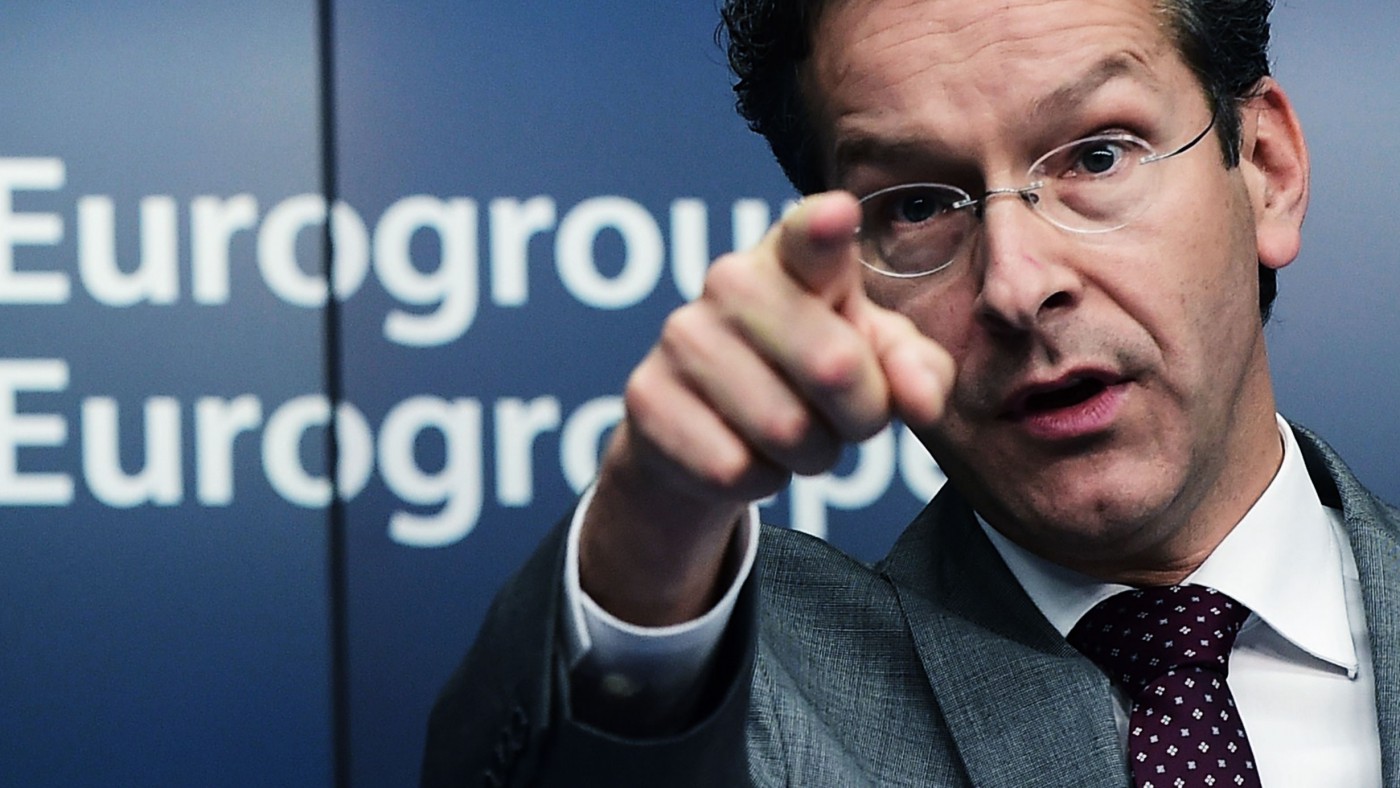Imagine that a gang of regulars from your local pub asked you to join them in an investment scheme. Suppose you politely declined, only for them to start pestering you.
Listen, they say, if you don’t get involved you’ll regret it for the rest of your life. In fact, if you insist on staying out, you might not be quite so welcome in this pub in future.
You mull it over, and you’re just not convinced. You wish them well, but it’s really not your kind of thing. “Well then, suit yourself,” they reply coldly, turning back to their pints.
Not long afterwards, their investments go sour, and they demand that you bail them out. “Hang on,” you say, “How is this my problem?” “We’re not asking you, we’re telling you,” they declare. “We’ve just had a vote. You lost. Hand over your wallet”.
That’s pretty much how the EU is treating Britain and the other non-eurozone states, insisting that they pay to rescue a currency that they declined to join.
The really outrageous thing is not so much the cash as the dishonesty. I mean, don’t get me wrong, the cash matters. Britain is on the hook for a further £700 million – the sum, for example, that the BBC is about lose as a result of having to fund free TV licences for over 75s. Seven hundred million pounds would pay for 24,000 NHS nurses and their pensions. This is, as the French say, an important amount of money.
But even if it’s paid back promptly, the EU has shown itself so untrustworthy, so unable to keep to a contract, that Britain’s coming renegotiation must be considered a waste of time.
In 2010, the EU agreed that the European Financial Stability Mechanism, to which the UK had contributed, would not be used to bail out the euro. Instead, a new pot was created, filled only by states within the single currency.
David Cameron didn’t just get a gentlemen’s agreement; he got a binding, written guarantee. Yet, the moment that guarantee became inconvenient, Jean-Claude Juncker and his fellow Commissioners – to say nothing of the other heads of government – tore it up.
How can we deal with an organisation that behaves this way? Whatever we think we have consented to, it can be altered whenever Brussels feels like it.
Ministers are hoping to sell changes in Britain’s relationship with the EU to voters in a referendum next year. But voters can now see that such changes won’t be worth the paper they’re written on.
It’s possible, of course, that the UK might rally enough non-eurozone states to block the activation of the fund. It’s even possible that, once again, government press spokesmen are raising the prospect of a terrible deal so that, when they sign a slightly less bad deal, they can present it as a victory. This is what George Osborne did, for example, when Britain was suddenly stung with a “prosperity surcharge” for having had the temerity to grow faster than the Eurozone.
But that’s not really the point. The point is that, by officially proposing to activate the fund, in clear breach of all its commitments, the European Commission has shown itself to be an unreliable negotiating partner. The criticism that Eurocrats levelled against Yannis Varoufakis – that you can’t deal with someone who won’t stick to his word – applies precisely, from a British point of view, to them.
Not that David Cameron will allow himself to see it that way. Having decided to remain in the EU at all costs, he is prepared to put up with pretty much any abuse. We saw that when Jean-Claude Juncker was appointed in the first place. The British leader had made clear that this was a red line issue for him but, in the event, his counterparts went ahead and approved Juncker by 26 votes to 2; and David Cameron acquiesced.
That was the last moment at which I, or any other close observer, thought that there might be circumstances in which the PM would campaign against the EU. Hence the flagrancy of the Eurocrats’ present demand: they know that, in the end, David Cameron will take whatever they dish out.


